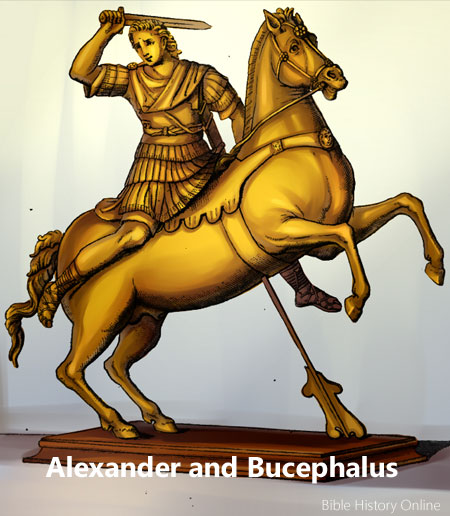20. in his estate--in Antiochus' stead: his successor, Seleucus
Philopater, his son.
in the glory of the kingdom--that is, inheriting it by hereditary
right. MAURER
translates, "one who shall cause the tax gatherer
(Heliodorus) to pass through the glory of the kingdom," that is,
Judea, "the glorious land"
(Da 11:16, 41;
Da 8:9).
Simon, a Benjamite, in spite against Onias III, the high priest, gave
information of the treasures in the Jewish temple; and Seleucus having
reunited to Syria Cœlo-Syria and Palestine, the dowry formerly
given by Antiochus the Great to Cleopatra, Ptolemy's wife, sent
Heliodorus to Jerusalem to plunder the temple. This is narrated in 2
Maccabees 3:4, &c. Contrast
Zec 9:8,
"No oppressor shall pass through . . . any more."
within few days . . . destroyed--after a reign of twelve years, which
were "few" compared with the thirty-seven years of Antiochus' reign.
Heliodorus, the instrument of Seleucus' sacrilege, was made by God the
instrument of his punishment. Seeking the crown, in the absence at Rome
of Seleucus' only son and heir, Demetrius, he poisoned Seleucus. But
Antiochus Epiphanes, Seleucus' brother, by the help of Eumenes, king of
Pergamos, succeeded to the throne, 175 B.C.
neither in anger, nor in battle--not in a popular outbreak, nor in
open battle.
JFB.

Painting of Alexander the Great and his horse Bucephalus
Daniel Resources
The Divided Kingdom
The
Northern Kingdom of Israel
The
Southern Kingdom of Judah
The Assyrian Captivity
The Babylonian Captivity
The Return From Babylon
The Prophets
The Messiah